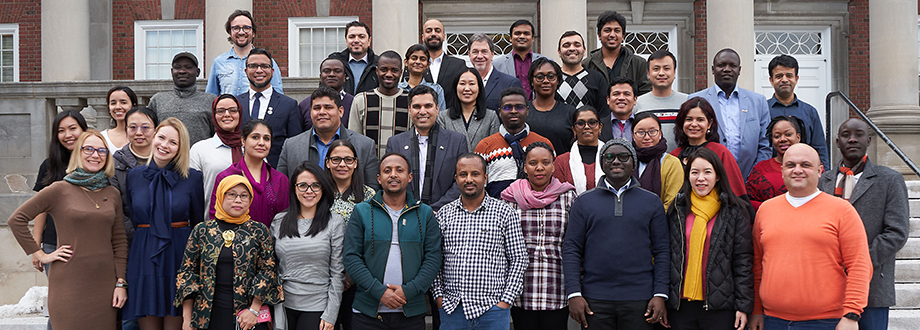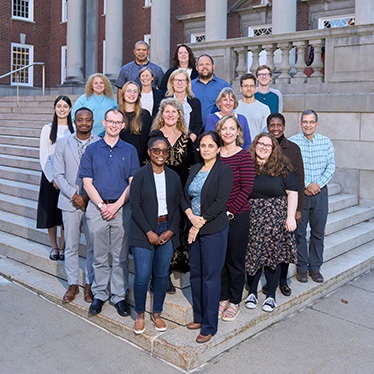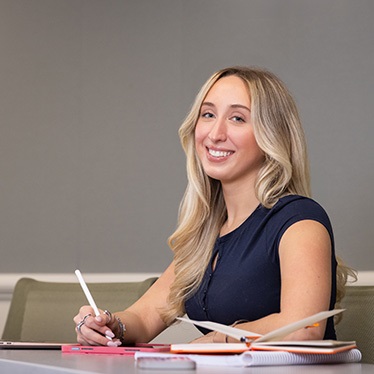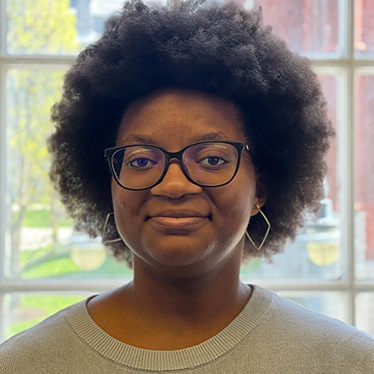Humphrey Fellows workshop, Coronavirus serves as case study
March 9, 2020
 Humphrey
Fellows at a recent weeklong seminar discussed the coronavirus in the context
of crisis management planning. “Crises are almost the perfect storm for
challenges in good governance,” workshop leader and Maxwell School faculty
affiliate Bruce W. Dayton said. “During a crisis you are under high stress.
Everyone is paying attention. You have very short time to make decisions and
you’re confronted with uncertainty. All of those are interconnected.”
Humphrey
Fellows at a recent weeklong seminar discussed the coronavirus in the context
of crisis management planning. “Crises are almost the perfect storm for
challenges in good governance,” workshop leader and Maxwell School faculty
affiliate Bruce W. Dayton said. “During a crisis you are under high stress.
Everyone is paying attention. You have very short time to make decisions and
you’re confronted with uncertainty. All of those are interconnected.”
Forty-one fellows representing 32 countries and 9 host campuses attended Leadership and Governance during Times of Crisis, an annual weeklong workshop sponsored by Syracuse’s Maxwell School and administered by Executive Education.
Particularly relevant this year was a seminar on public health emergencies, presented by Tom Dennison, professor of practice emeritus of public administration and international affairs. “He focused on how the public health care system is managed in this country,” Dayton said.
The participants’ diverse experiences and geographic locations reflect a broad variety of health care systems and government structures. “These conversations across boundaries are an important part of the program,” Dayton said.
Dayton is a faculty affiliate in the Moynihan Institute of Global Affairs and the Program for the Advancement of Research on Conflict and Collaboration and associate professor of peacebuilding and conflict transformation at the School for International Training in Brattleboro, Vermont. This was the eighth year he led the weeklong workshop.
Participants are among 149 Humphrey Fellows from 95 countries spending the 2019-20 academic year at one of 13 U.S. universities. Humphrey Fellows spend ten months in graduate study, professional development and cultural exchange, focusing on diverse fields of study. The Hubert H. Humphrey Fellowship is sponsored by the U.S. Department of State with funding provided by the U.S. Government and administered by the Institute of International Education.
Discussions of coronavirus explored resources to address the crisis, funding challenges, politicization and the social amplification effect – how people’s perception of risk level compares to data.
The group also talked about resilience vs. prevention. “The U.S. comes from a culture of prevention because we have more access to resources and can put into place processes to mitigate risks,” Dayton said. “Societies that don’t have many resources build a level of social resilience because they have found ways around broken systems.”
Good crisis management “begins a long, long time before a crisis hits and only ends a long, long way after,” Dayton said. “The best systems are the ones that manage crises and can respond to the crisis and insulate those people from political concerns. Many participants are from parts of the world where that is simply not possible.”
03/09/20
Related News
School News

Jan 7, 2026
School News

Dec 5, 2025
School News

Dec 4, 2025
